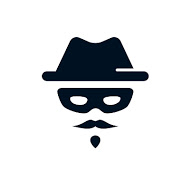Think You’re Invisible?
The anonymity Internet supposedly provides can give one a false sense of security. If you find yourself browsing some sketchy websites, you may get burned. Take, for example, the hack of Ashley Madison, a website dedicated to cheating on one’s spouse. Recently a group called the “Impact Team,” hacked the site and threatened to expose these cheaters.
We’re not here to chastise Ashley Madison users; we’re sure their spouses already have that covered. This is just an example to show that unless Internet users take careful steps to keep their identities anonymous while online, it could get ugly.
No Site is Invulnerable
Even the United States federal government was recently hacked and the confidential records of 4 million employees were compromised. No site is bulletproof, especially high profile sites.
Essentially, if a skilled hacker wants your browsing history, they can get it. Yes, you can minimize the chances that they’ll uncover dirt on you. You may not have anything to hide, but it’s still important to protect your sensitive information. You never know who might be watching.
Here are five ways you can minimize your online exposure:
Clear Your Browsing HistoryClearing your browsing history is often perceived as a sign of sketchy browsing activity, but deleting your browser’s history keeps hackers from finding your frequently-visited online accounts.
Many browsers allow you to have private browsing sessions that don’t store your history locally, like Google Chrome, Mozilla Firefox, and Microsoft’s Internet Explorer and Edge. Your history is still visible to your ISP.
Don’t Use Your Real Name
This is easier said than done. Many websites like Facebook require real names to keep people accountable for what they post. Whenever you can conceal your real name, do so.
Don’t Use Personal Photos
This is especially true if you don’t want an account to be traced back to you. Be sure to post a generic image of interest, rather than your kids, house, car, or other personal photos.
Protect Your Credit Card Information
If a hacker can get your credit card information, they can access your purchase history. This could get awkward if you’ve bought something you want to keep private. Cryptocurrencies are an anonymous way to shop online, but not everyone accepts them. Prepaid credit cards can’t be traced back to you and are accepted everywhere.
Don’t Use Your Personal Email Account
Finally, using your personal email to sign up for accounts is not only risky, but it can also get you an inbox full of spam. Create a “burner” email account from a free online hosting service like Gmail or Yahoo. It’s a simple and anonymous solution which distracts hackers away from your personal inbox with all of its sensitive information.
These days it’s hard to browse the Internet without picking up malicious software, so you need to take precautions. For more tips and tools to keep your private information secure, call Quikteks at (973) 882-4644.

